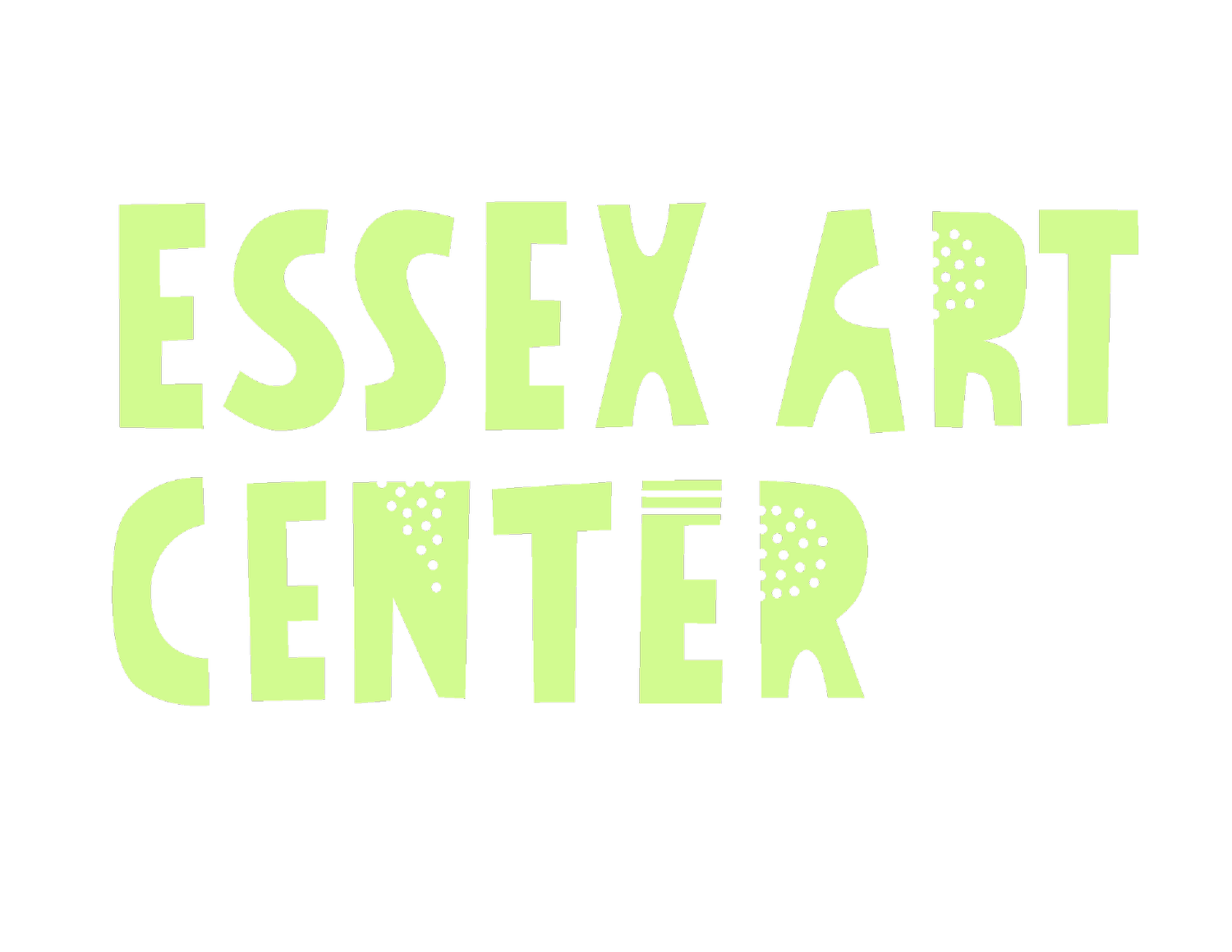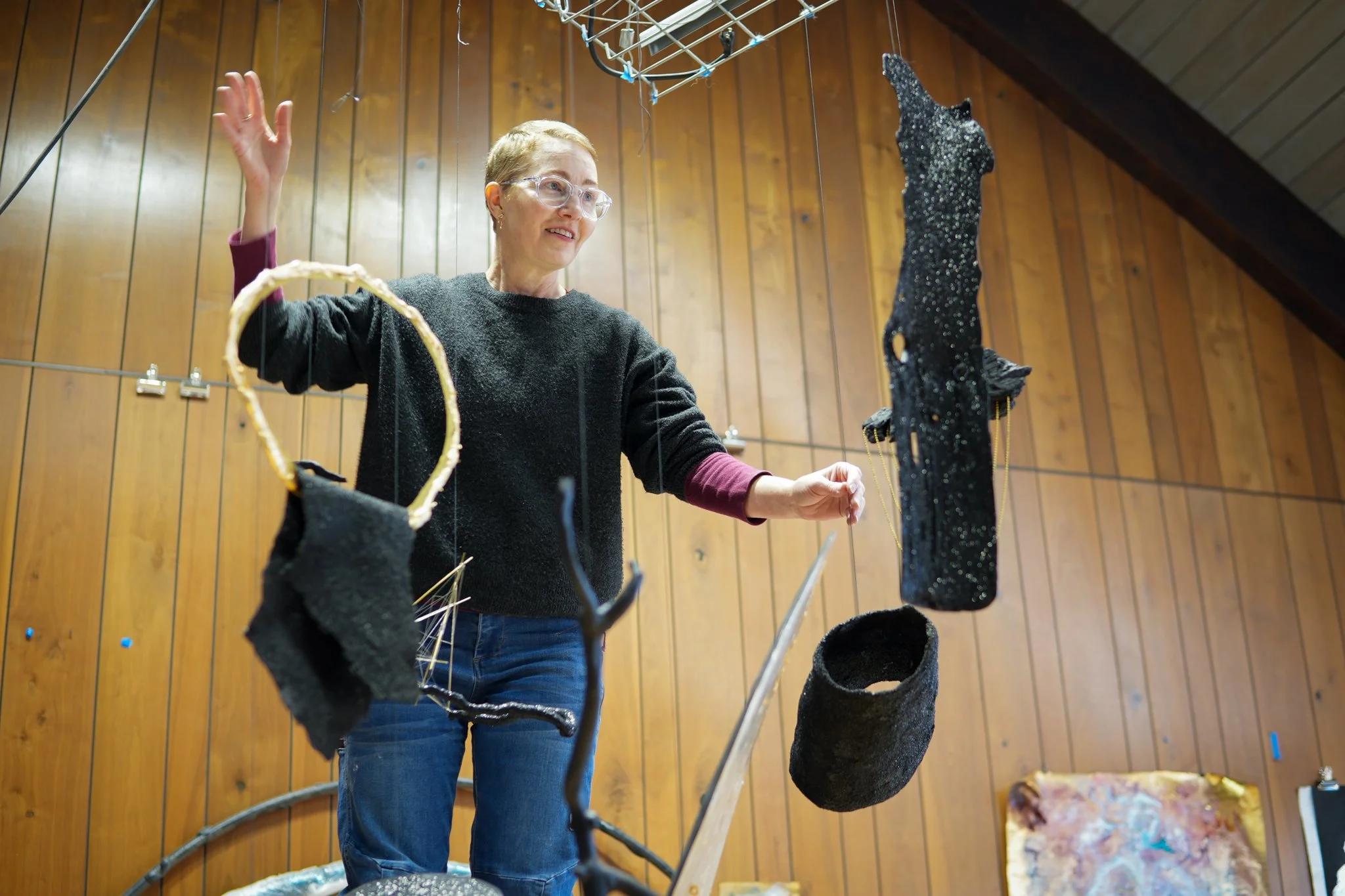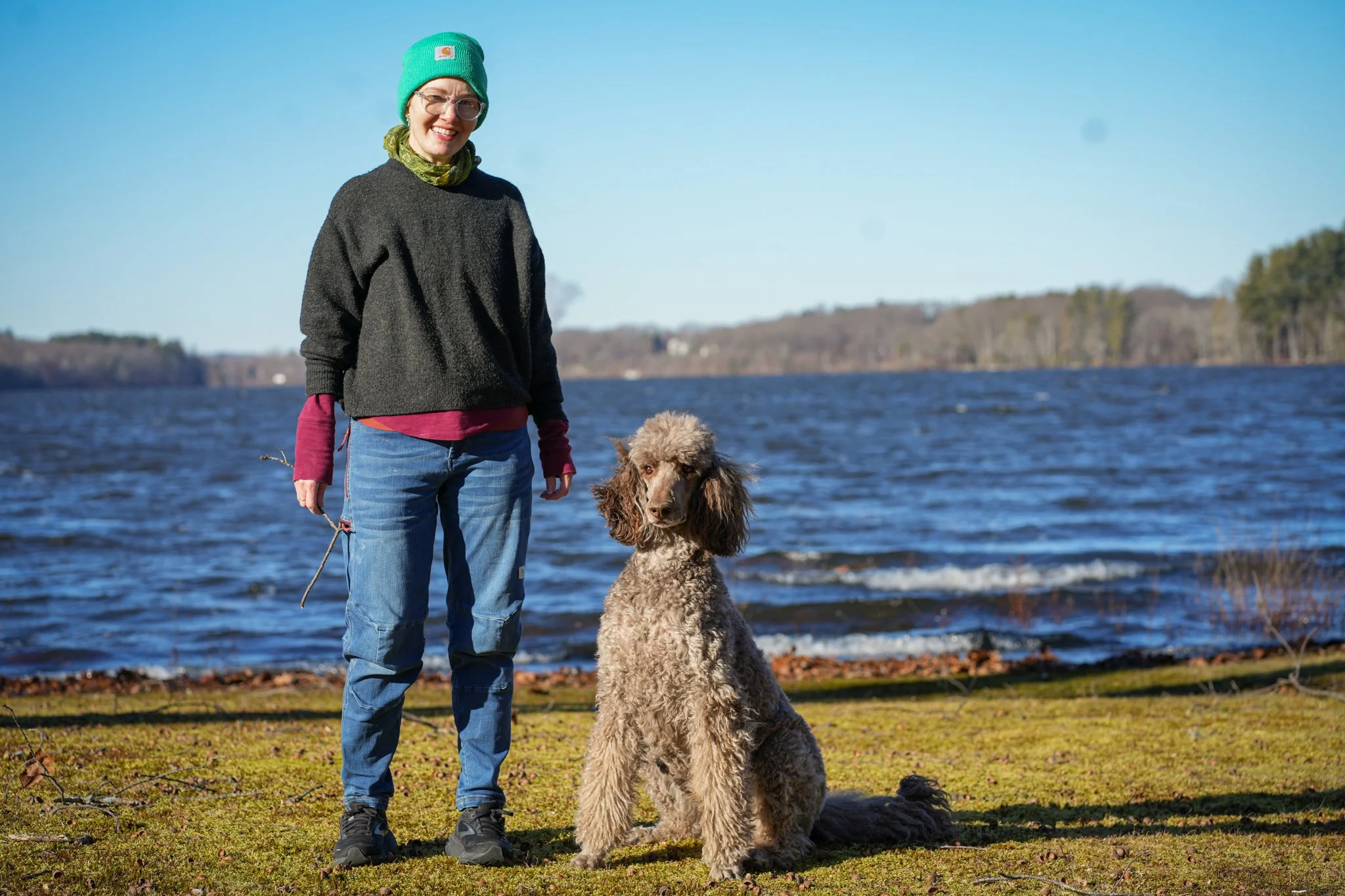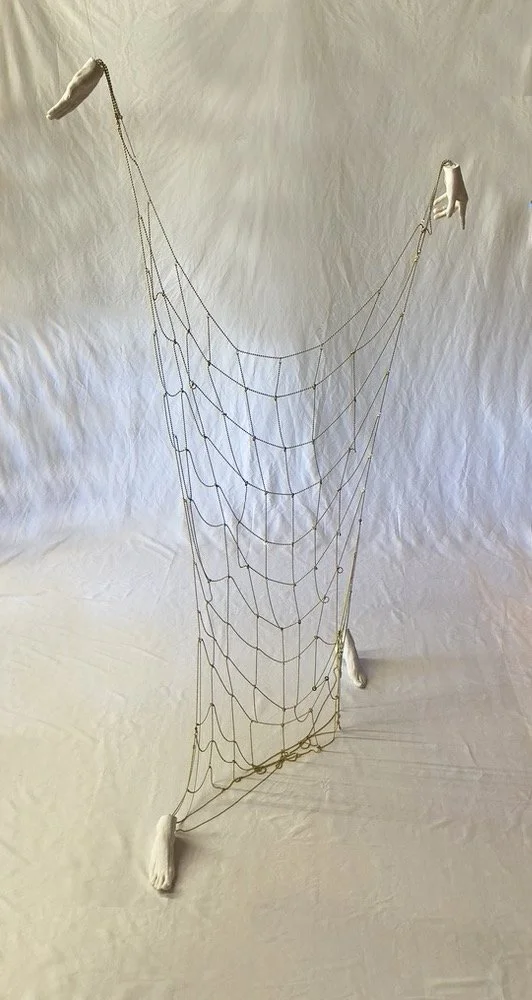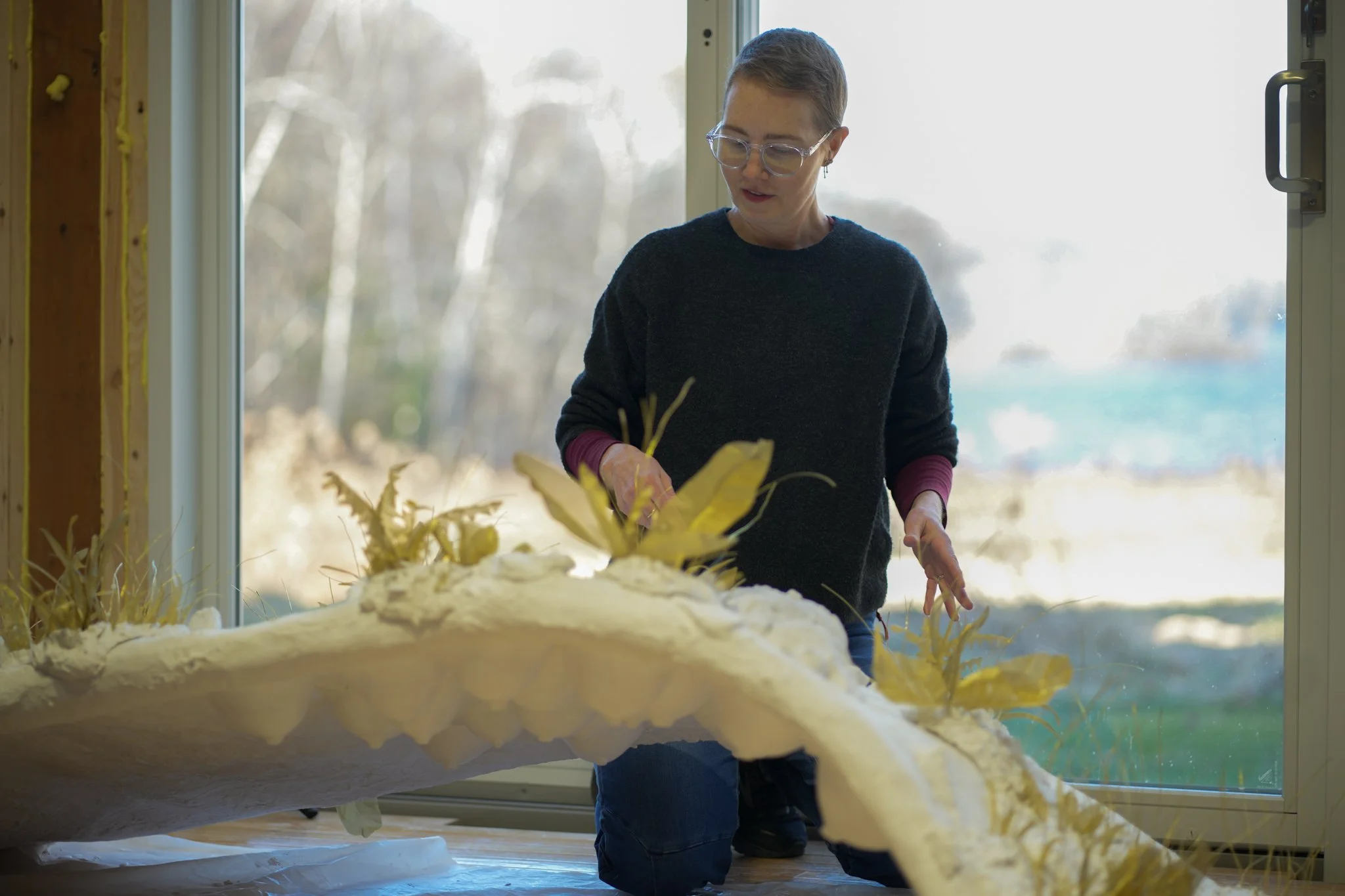Leah Piepgras (b. 1970) received her MFA from Carnegie Mellon University in 1997 and has exhibited and performed throughout the United States. Her lush paintings and performative sculptures are meditations on time, humanity, and our place within the cosmos. Her work has been covered in Artsy, The New York Times, The Boston Globe, and will be featured in the Eagle-Tribune.In preparation for her exhibition Parts and Pieces of the Universe, which opens at Essex Art Center on January 13, I visited Leah at her home studio in North Andover. The sounds of construction punctuated our conversation; Leah and her husband Colin are converting a 1969 swinger's pad into their home and maker space. We settled into chairs surrounded by Leah's works in progress and Lazlo the dog, her unofficial studio assistant, pressed to my side.Monica Lynn Manoski: Leah, you are prolific, and seeing so much of your work in one place is such a treat. Your work is informed by the study of physics, geology, anatomy, and paradox. Two paradoxes, in particular, shape your thinking. Can you tell us about them?Leah Piepgras: The coastline paradox says that all space and objects are infinite. For example, if you measure the perimeter of Lake Cochichewick with a yardstick, you'd come up with one measurement, but if you use millimeters or smaller units and measure the exact water line, it would be impossible–it would be infinite. I started thinking about measuring the body that way, and we become infinite as well.The heap paradox considers when something becomes what it is. I love applying that to our physical existence and our human thinking. At what point are you sick? Or, a more enjoyable one to ponder—at what point do you fall in love? There is a moment of knowing, but getting to that is made up of tiny particulate matter. It's made up of smelling somebody, touching somebody. It's funny to make objects; the thing is really an idea. You're making something from parts and pieces and nothingness, and then it comes to be. When I'm making work there's just a moment of rightness. When it's really good work, you don't make that happen—it just happens—it's like it is born, not made.MLM: In Big Magic, author Elizabeth Gilbert talks about the importance of showing up and being ready because you never know when the moment of divine inspiration will strike.LP: Yes, you've got to be present for it. I love thinking through material problems, like getting a certain texture or color or making something stand or bend without seeing a joint. These things entertain me for hours. When I was sick, I constructed stuff in my head. When I returned to my studio, what I made wasn't talking back to me. It took weeks of showing up daily, making a lot of bad stuff, and throwing it away. 